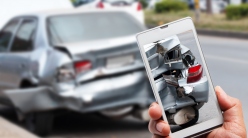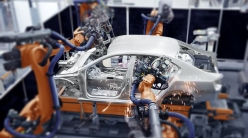Many of us can’t imagine life without our own vehicle to drive, but that independence comes with a price tag. In Florida and elsewhere in the United States, motorists paid an annual average of $8,469 in 2017 for merely the interest on their car loans. That doesn’t even include the costs associated with necessary repairs. And while these fixes can be expensive, drivers can’t afford to ignore them. If they do, they could risk paying substantially more down the road or even jeopardize their safety while behind the wheel.

Take your vehicle’s windshield, for instance. This essential component of a car is what keeps debris and precipitation from derailing your travel plans. And while it might not protect you from harmful UVA rays, it does ensure that you can see clearly while navigating highways and city streets. That’s assuming your windshield is in excellent shape, of course.
Many motorists don’t realize that a number of conditions can rupture a windshield — and thereby present a threat to their safety. If you notice even a small chip or crack on your windshield, you should seek out Orlando windshield repair or replacement right away. Don’t wait to have these repairs performed, because this damage can quickly get worse or make the aftermath of a collision far more serious than necessary.
But what exactly caused this crack in the first place? Windshield cracks don’t simply appear; there’s always a reason.
Pressure or temperature changes
In Florida, you won’t have to worry too much about extreme temperature changes. While drivers in the northern part of the nation may experience windshield cracks as a result of severe seasonal shifts, Florida’s temperatures typically range from 50 to 80 degrees Fahrenheit. But Floridians do have occasional extreme weather patterns to contend with, particularly during hurricane season. Sudden changes in pressure or heavy winds can lead to windshield cracks or make existing vulnerabilities worse, so it’s a good idea to keep up with your car maintenance and prepare as much as you can for a storm.
Sunlight
We’re not called the Sunshine State for nothing. Too much sun exposure can damage both your skin and your car’s windshield. That’s because the heat from the sun can cause uneven expansion of the glass. When the edges expand more rapidly than the center of the windshield, cracks can form. Keeping your car stored in the garage or in a shady spot can help to prevent cracks from developing.
Gravel and debris
Your windshield is meant to protect you from debris, but your windshield has nothing protecting it. As a result, your windshield can become damaged when it comes into direct contact with rocks or debris, especially when you’re driving at higher speeds. Gravel roads can be a problem for this reason. Although it’s best to avoid driving on unpaved roads at all, you’ll want to maintain a slow speed and a safe distance from other vehicles if you need to drive on gravel. The same goes for driving behind any construction vehicles, because sharp debris can often fly out and hit your vehicle. If possible, try to change lanes so that you aren’t directly behind these vehicles when driving.
Faulty glass or installation
While it’s rare, poor quality glass manufacturing processes can result in an inferior windshield. Defective glass isn’t something most motorists can recognize themselves, but an experienced auto body or auto glass shop can determine whether this might be the problem. If it is, you’ll want to have your windshield replaced. Improper windshield installation can cause stress or vibration of the windshield because it may not fit properly in the frame. This added movement can then lead to cracks and other problems. In most cases, this can be fixed through repositioning, but any subsequent damage will need to be repaired.
Car owner must conduct regular physical inspections and pursue routine maintenance to keep costs low over time and to prioritize safety. Not every windshield crack can be avoided, but now you know the most common reasons why this damage might occur — and the seriousness of this seemingly small issue.





